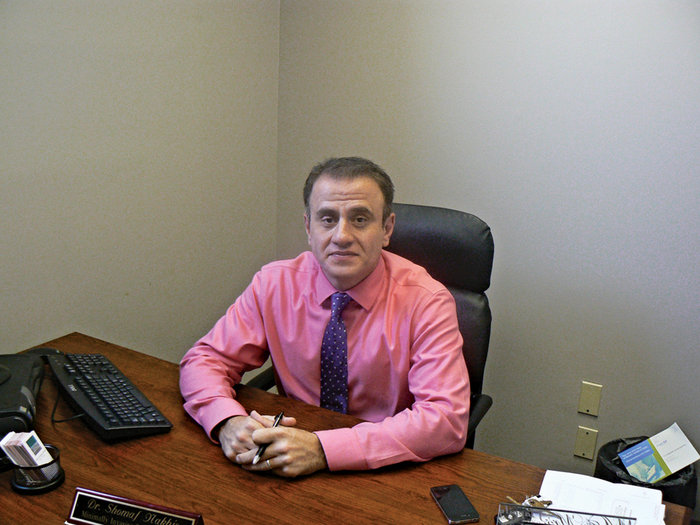A recent study has revealed that North Americans account for 34 percent of the world’s obese human beings. Hospitals, private practices, and trained professionals around the nation are trying to respond to this epidemic, which has impacted millions of Americans.
With limited options in Hudson County, Hoboken University Medical Center (HUMC) has begun to offer weight loss surgery options to meet the needs of local residents.
HUMC has added Dr. Shomaf Nakhjo – who runs a private practice in nearby Union City – to the surgical staff of the hospital. Nakhjo is a trained bariatric surgeon who is qualified to perform gastric bypass, sleeve gastrectomy, and other minimally invasive surgical weight loss options.
“The plan is to have a successful bariatric program and meet the needs of the community.” – Dr. Shomaf Nakhjo.
____________
Nakhjo’s training and education background span nearby institutions such as the New York College of Osteopathic Medicine and Hackensack University Medical Center. He has joined the Hoboken University Medical Center’s team to provide his expertise in weight loss to residents of Hudson and Bergen counties.
Format
Nakhjo said that he sees patients at his private office in Union City and, if needed, will perform surgeries in the HUMC hospital.
“The hospital and its staff are designed to cater to bariatric patients,” said Nakhjo. “We have special equipment to handle the needs of [the patients, including] the latest laparoscopic equipment.”
“It’s really a metabolic and obesity center,” continued Nakhjo. “We have a full supportive staff.”
Nakhjo said the hospital amenities include a dietician, psychiatrist, nutritionist, and support groups for people that have had weight loss surgery.
“Everyone who has had weight loss surgery gets together and talk about their battles and their challenges,” said Nakhjo. “Surgeries are just the first step with bariatric patients. Nutrition support, psychological support, exercise, and social support groups are the key to successful weight loss.”
Nakhjo said that the hospital also offers support groups and free monthly seminars for information on surgical weight loss options on the third Thursday of every month.
Statistics
Nakjho said that the obesity epidemic is still growing.
“The epidemic continues to grow,” said Nakhjo. “A third of Americans are considered obese, and it’s growing.”
Nakjho attributed the epidemic to the working behavior and lifestyle of Americans.
“People are more sedentary,” said Nakhjo. “They have less time to cook, so they rely on fast food and that sort of thing, which increases portions.”
Nakhjo said that surgery is perhaps the best way to resolve obesity.
“Weight loss surgery is the most effective method in long-term successful weight loss,” said Nakhjo. “[With other] conservative therapy [methods], 96 percent of them fail within two years, and most people regain their weight.”
Nakjho said that weight loss surgery can also fully reverse medical conditions such as diabetes or high cholesterol.
“90 percent of the time, diabetes goes away with weight loss surgery,” said Nakhjo. “Patients also often see an increased quality of life long-term and an improvement in survival.”
Nakhjo also said that patients typically spend one to three days in the hospital and return to full-function within a week.
For more information on seminars or surgical methods, contact Claire Houlihan at CHoulihan@HobokenUMC.com.
Stephen LaMarca may be reached at slamarca@hudsonreporter.com.
